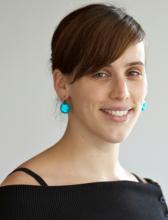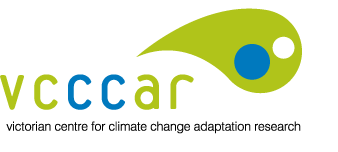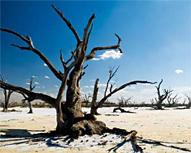Imagining the future at the Australian Science Communicators conference

Phoebe Bond, Communications and Marketing Officer at VCCCAR, wrote and presented the prologue for a session at the Australian Science Communicators conference in Sydney in February. The session was titled Imagining the Future and the prologue took shape as a series of vignettes told from the perspectives of Melbourne’s future residents to reveal a probable future in 2030. The invention of characters and situations carried the factual messages of the most likely scenarios. This shared experience by session participants set the context for the presentations and discussions that followed.
The Panelists:
Liese Coulter is the Knowledge Communication Manager for the National Climate Change Adaptation Research Facility, building on a Master of Science in communication with the Centre for the Public Awareness of Science.
Phoebe Bond is an emerging fiction writer who works for the Victorian Centre for Climate Change Adaptation (VCCCAR) in a communications capacity. Phoebe is interested in imagining what our future might look like under different climatic conditions and is dedicated to making information about climate change adaptation accessible to the public.
Bobby Cerini is a science communication researcher, writer and project manager, with a special interest in emerging technologies and visual communication. She currently leads the Movies and 3D visualization team at Geoscience Australia, and supports science filmmaking via the Science and Factual Filmmakers Network.
Cris Kennedy is Director of the CSIRO Discovery Centre in Canberra. Cris's two big loves - science and film - come together in SCINEMA Festival of Science Film, which he has been Artistic Director of since 2003, taking from a single-screen event to playing on 400 screens across Australia in 2011.
John Clarke has worked as the Tailored Projections Liaison Manager with CSIRO Marine and Atmospheric Research since August 2009. John led the development and roll-out of the Pacific Climate Change Science Program's highly successful Pacific Climate Futures web-tool (www.pacificclimatefutures.net) which was launched in 2011.
To read the prologue see the attached file.


